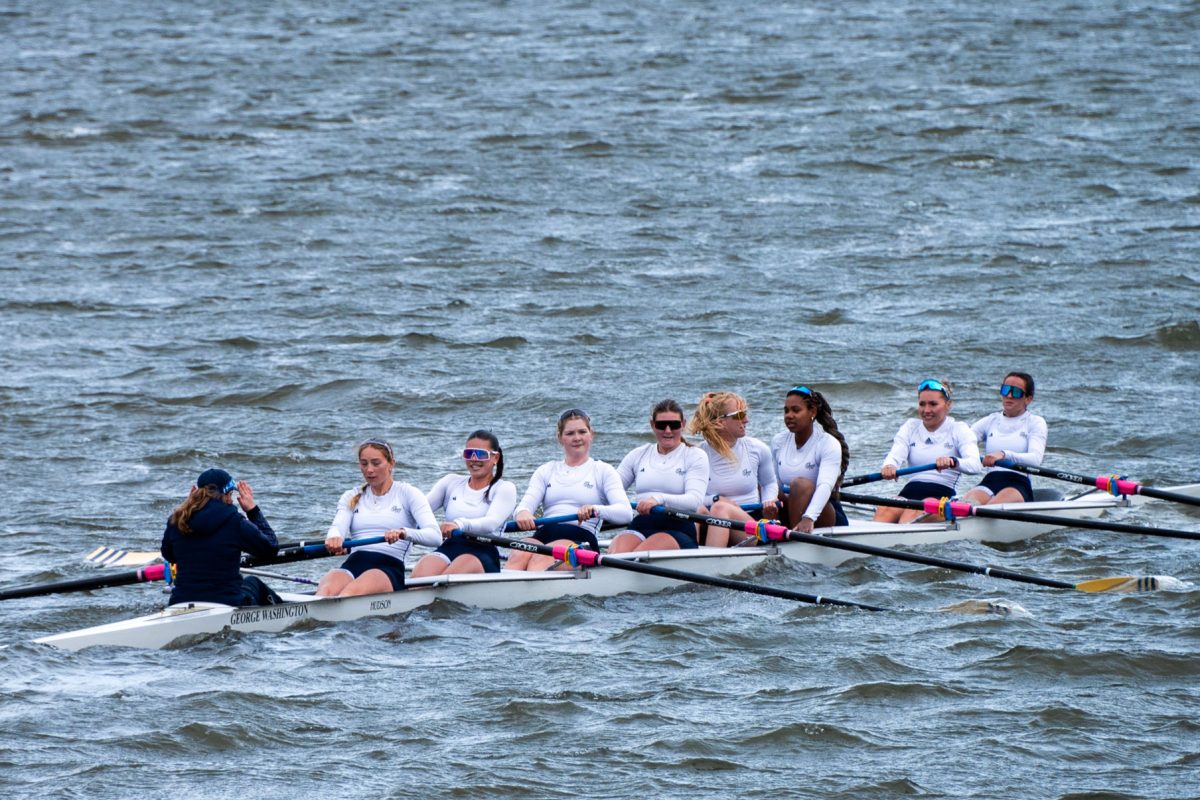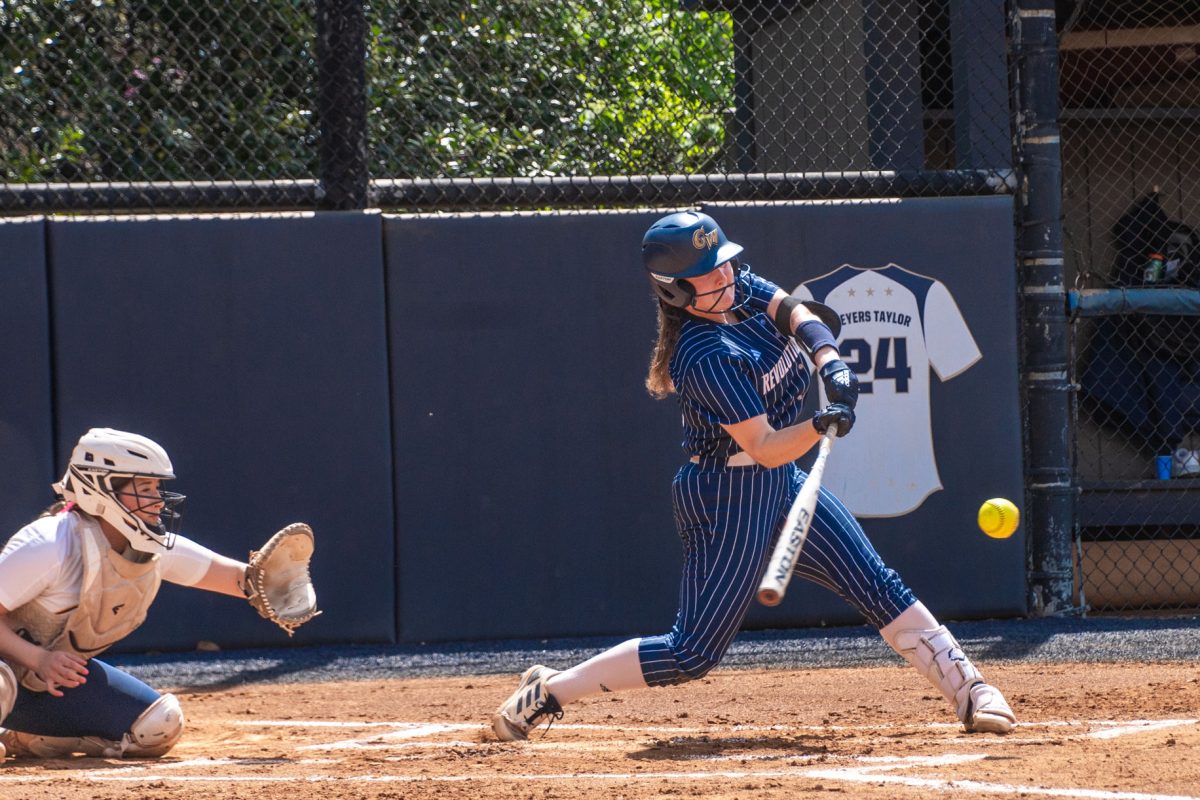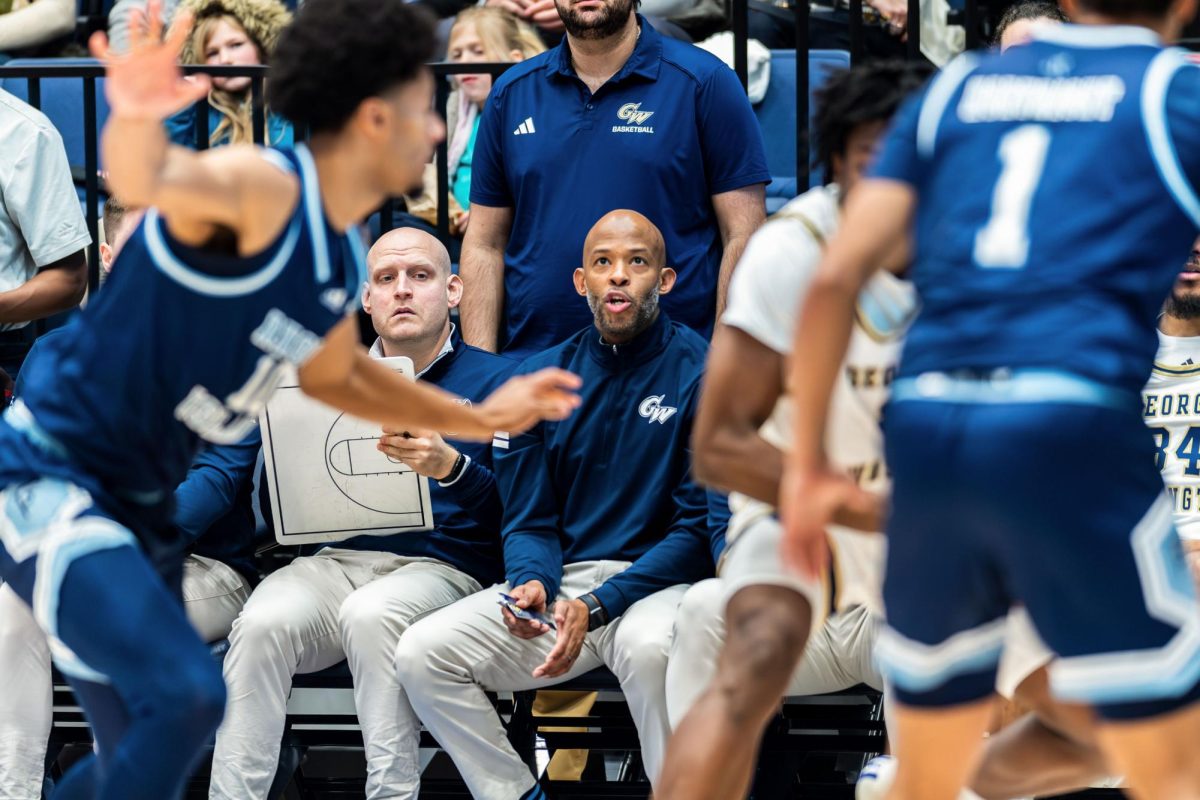In tennis, perhaps more than in any other sport, a player is never really out of a match until he shakes hands with his opponent. Each individual game represents a fresh start, as all it takes is a few points for the momentum to change sides completely, simultaneously starting both a comeback and a collapse.
If senior Anastasia Skavronskaia did not already know this lesson, she learned both sides of it first-hand during two of her matches Saturday at the Georgetown Invitational. GW lost to the Hoyas 4-3 overall, beat American 4-3 and beat University of Maryland-Baltimore County 4-3.
Up 7-2 in a first-to-eight-games, pro-set No. 1 doubles match against Georgetown, Skavronskaia and fellow senior partner Sandra Simunic fell apart. The pair ended up losing 9-8 in a tiebreak.
“Up until 7-2 we did a really good job, we were very focused and on top of what we needed to do,” Skavronskaia said. “Nerves got to us a little bit after that and we didn’t finish it off like we were supposed to.”
Simunic, who has a history of wrist injuries, pinched a nerve last week, forcing the pair to forfeit the finals match of the Metropolitan Tennis Championships. Because she did not practice at all this week, she was held out of her singles matches at Georgetown and only played doubles. Considering her lack of recent play, Simunic played “very well,” Skavronskaia said, but the team was forced to forfeit all its number six singles matches as a result.
A few hours later, in her No. 1 singles match against UMBC’s Ale Pedergnana, Skavronskaia, the 2005 Flight A Metropolitan Tennis singles champion, started off slowly with a slew of unforced errors. Down 3-1, Skavronskaia stormed back, capitalizing on Pedergnana’s own mistakes to win 8-4.
As the momentum shifted, so did the body language of the players. A Miami native, Skavronskaia kept her cool and methodically went about winning with a combination of power and control. The brilliant shots that Pedergnana hit in the beginning of the match started going long or wide, and frustration seemed to set in.
“I think (the nervousness) carried over into the singles match a little bit,” Skavronskaia said. “You have to get over it, not think about it the negatives and stick to the positives. Once they start losing their confidence you have to push through.”
For this year, the event’s format was switched to a round-robin format, where all four schools, GW, Georgetown, American, and UMBC, played each other in both singles and doubles.
GW head coach Dawn Booth said she likes the format change, for various reasons.
“The new format gives us a little bit of an introduction to the spring season, since a lot of us only play tournaments in the fall,” she said. “It is a lot more structured this way, with tournaments you can literally get there at 8 a.m. and leave at 10 p.m.”
Another change for this year is playing single pro set instead of a best of three set. The reason for the change, Buth said, is since each player plays three matches a day over the two-day event, the best of three format is too strenuous.
Junior Rachael Honig transferred to GW this year from the soon to be defunct American tennis program. Although she has yet to play because she is still recovering from an offseason surgery, Honig has adapted well to her somewhat-new surroundings and has done a terrific job supporting the team, Booth said.
Honig is not the only newcomer on the team. Madhuri Jha is the team’s only freshman, but she has already benefited from the tutelage of the team’s more experienced players. Down 6-3 in her singles match against UMBC sophomore Gabriela Furdyna, Jha came back to win 9-8 in a tiebreak.
“When I get in that position, my mentality is to stay out on the court as long as I can,” the Oakbrook, Ill., native said. “My mentality was to stay within myself and not think about the girl who was playing across the court, she was getting confident.”
Being the only freshman on an experienced team has its downfalls, but Jha said the situation is far from awful.
“I look up to everyone on the team a lot,” Jha said. “Sometimes it is hard being the only freshman but then again it’s great having a lot of people around you who are experienced and know how to handle situations really well. I couldn’t ask for anything better.”
Situations like how to keep focused after a rough few games to come back and win. That situation Jha and the rest of the team know better than any other.







